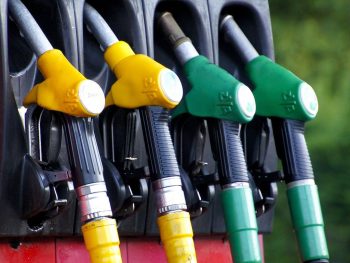Oil flash crash may not bring drastically lower pump prices
Despite oil prices crashing yesterday, falling demand may stop prices dropping to reflect lower wholesale costs – leading to increased debate over the UK’s ‘rip-off’ fuel prices.

The AA has said questions will be asked about the fairness of pump prices during the great oil crash of 2020
The crash saw WTI (West Texas intermediate) oil prices – the benchmark for US oil – plunge as low as minus $37 at one point and was the result of the WTI heading towards its expiry date for May delivery, underpinned by a major fall in demand due to lockdown measures as well as continued oversupply; despite measures earlier this month, output has not been cut in line with the unprecedented times.
While there has been an impact on Brent crude – which is used as a measure in the UK and other countries in Europe – the impact has not been so major.
However, any impact on pump prices is yet to be seen and the FairFuel Campaign says motorists continue to be “fleeced by the fuel supply chain”. According to the campaign, massive wholesale falls in March had already been held back by the UK’s fuel supply chain; while petrol should be 98p and diesel 106p per litre, they are averaging 10p higher. Figures from the AA for 20 April show the average price for a litre of unleaded was 109.95p while diesel was at 115.33.
Howard Cox, founder of FairFuelUK Campaign, has warned that the coronavirus crisis is being used as a smokescreen, adding: “It’s time the Government really looked after the highest taxed drivers in the world and our vital haulage industry, and introduce PumpWatch as a matter of emergency. An independent pricing watchdog is vital to protect our economy and allow essential workers to fill up their vehicles with the fairest and most honest prices at the pumps.”
The AA has also warned that oil, commodity petrol and pump prices are all moving on their own tracks at the moment and said that drivers are being overcharged on average by more than a fiver a tank.
Fuel spokesman Luke Bosdet said: “Lockdown for many drivers is like watching the oil price turmoil from inside a goldfish bowl.”
He added: “I suspect that when the lockdown comes to an end, coronavirus is beaten and driving starts to return to normal, questions will be asked about the fairness of pump prices during the great oil crash of 2020.”
RAC fuel spokesman Simon Williams has also said that the price of unleaded should be lower but added that the reduced demand is affecting the situation.
He commented: “The oversupply of oil continues to suppress the barrel price and it’s clear now that plans by some of the world’s largest oil-producing nations to limit production haven’t yet been enough to lift the price – there’s currently too little demand for oil in the first place.
“It’s right that retailers charge a fair price for fuel that reflects the price of the raw product, and in theory petrol prices could fall below £1 per litre if the lower wholesale costs were reflected at the pumps – but at the same time people are driving very few miles so they’re selling vastly lower quantities of petrol and diesel at the moment. This means many will be at pains to trim their prices any further.”
Williams also reiterated the RAC’s ongoing concerns about the impact of price cuts on independent forecourts.
“We also continue to be concerned about smaller forecourts that provide a vital service in areas where the supermarkets don’t have a foothold as many are already finding conditions tough with sales having fallen off a cliff since lockdown. It would be bad news all round if these forecourts shut up shop for good.”












